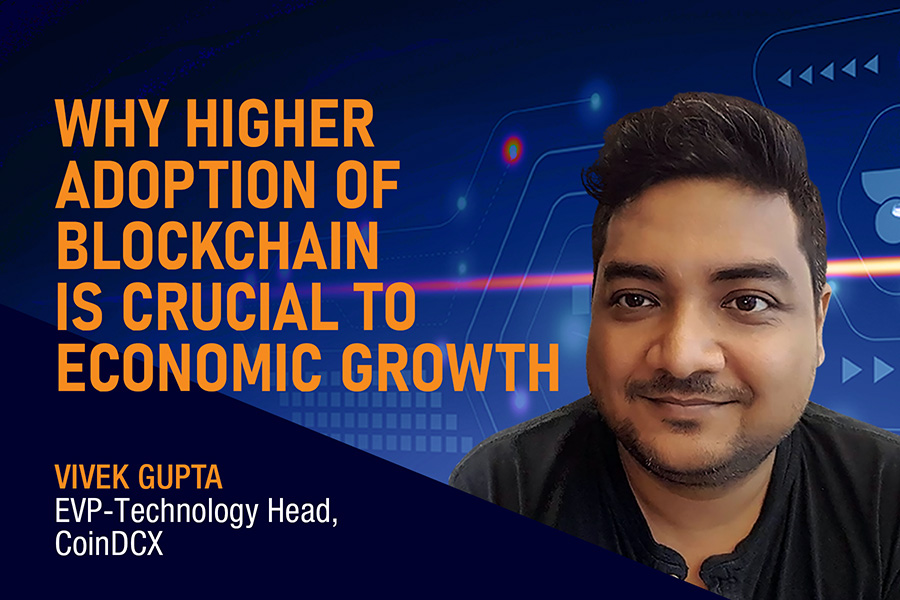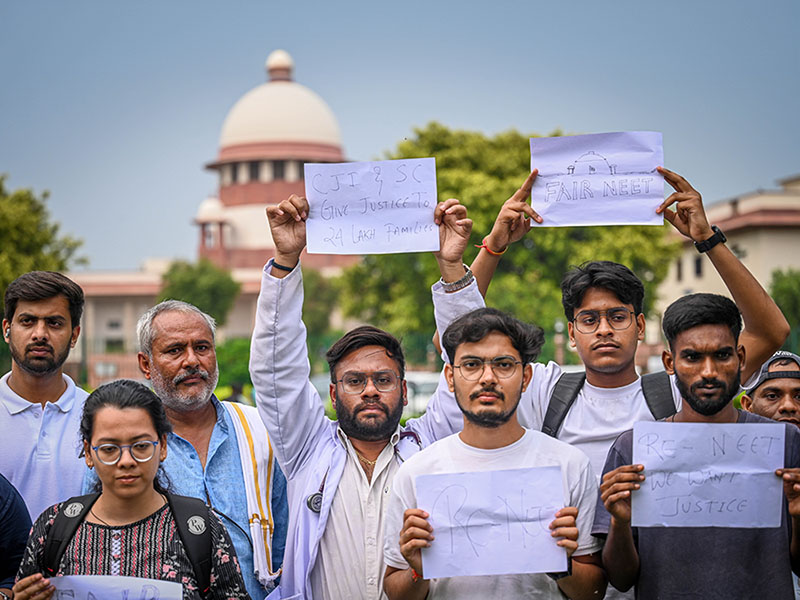
Why higher adoption of blockchain is crucial to economic growth
Blockchain technology is no longer a preserve of techies. It will be a catalyst for spurring economic growth through its fascinating applications across various industries
 The adoption of blockchain is rapidly increasing in various sectors across India and the world at large. India is touted to become a $5 trillion economy by 2024-25 and blockchain has the potential to play an integral role towards its growth. It is estimated that government-related blockchain projects could add $5.1 billion to India’s GDP in 2032. Blockchain provides business efficiencies when deployed in daily business processes as the nature of technology is such that it removes intermediaries and creates a decentralized database that can be accessed by the relevant stakeholders for decision-making.
The adoption of blockchain is rapidly increasing in various sectors across India and the world at large. India is touted to become a $5 trillion economy by 2024-25 and blockchain has the potential to play an integral role towards its growth. It is estimated that government-related blockchain projects could add $5.1 billion to India’s GDP in 2032. Blockchain provides business efficiencies when deployed in daily business processes as the nature of technology is such that it removes intermediaries and creates a decentralized database that can be accessed by the relevant stakeholders for decision-making.Large enterprises are exploring the adoption of blockchain in India in their daily processes and many start-ups are experimenting with the technology to provide different use-cases, especially in banking, insurance, and financial services. The government of India is also actively adopting and channelising resources to leverage the technology for use-cases in farm insurance, education, land title registry, and electronic health management, etc.
Increased blockchain adoption will help accelerate digitization in India. Over the past few years, the government has successfully created the foundation for digital infrastructure for recording and sharing data through the applications such as Aadhar, UPI, Digilocker, and e-Sign along with digitally enabled tax governance networks such as the GSTN. With an already well-established groundwork for collecting data, ramping up efforts to merge blockchain with these applications will help in the digitization process.
Governance in India faces several challenges as we are the world’s largest democracy and the world’s second-largest populated country. Given the diversity and the complexity involved in managing the public distribution services (PDS), blockchain offers unique advantages and possibilities to help improve governance. Blockchain provides a way of tracking and managing the goods sent to the beneficiaries as every stage of the supply chain can be tracked on the blockchain. The information is readily available to track in real-time on the blockchain and ensures that there are no leakages within the PDS and that the final recipient receives the goods and services as allocated. Increased blockchain adoption will directly provide benefits to the economy through better contract management and procurement, greater quality control, and reduced leakages and wastage across the supply chains.
Further adoption of blockchain will support SMEs and allow the private sector to conduct business more efficiently. With the deployment of blockchain, if the government allows ‘self-regulation’, the governance will drastically improve as entities can interact directly with each other on the distributed ledger through a trusted medium with reduced dependency on cumbersome regulatory oversight and compliance. Improved transparency and accountability will highly increase business efficiencies as the time and the costs to approve permissions and provide clearances will drastically reduce through embedded smart contracts, helping improve the ‘Ease of Doing Business”.
Blockchain is also beneficial in the agricultural sector of India by deploying the tech in National Agriculture Market (eNAM), which is an online trading platform for agricultural commodities in India. By recording the flow of information on the blockchain, audit trails of all the farmer’s produce are created and the data cannot be hampered as every record on the blockchain is cryptographically hashed. This reduces the mistrust between farmers and arhatiyas (mandi intermediaries) and also reduces the transaction costs, increasing the trade of commodities across India. Moreover, blockchain encourages farmers to produce high-quality goods as the incentive to earn a larger amount for their produce can be attached by providing certification of the provenance of organic produce that fetches a higher price in the export market.
During a time of natural calamity, blockchain can help in disaster management and insurance claims by automatically releasing claims in real-time by fetching the required data for claim management through smart contracts, saving the cost and money involved in the process. The education sector benefits through blockchain as it allows easier verification of education certificates and record-keeping.
Blockchain has the potential to impact social structures and economies and its invention can be compared to other revolutionary innovations such as electricity, steam engine, the computer and the internet. The benefits of increased adoption of blockchain are unprecedented, however, several factors will play a major role in accelerating its growth and awareness and education about the technology should become a part of the education system.
To reap complete benefits of the tech, it is integral that there is cross-collaboration between institutions, industry, and academia with support from the government. Also, it is highly recommended that since the tech is decentralised, the government must work alongside other countries to achieve interoperability of data and processes on the blockchain to ensure smooth application in payments systems, healthcare records, supply chain, etc.
Blockchain provides immense employment opportunities for India especially as the tech requires software developers, business acumen, and legal expertise. The application of blockchain will also act as a catalyst to revamp the existing governance processes and achieve higher efficiency and transparency in the system.
The pages slugged ‘Brand Connect’ are equivalent to advertisements and are not written and produced by Forbes India journalists.














